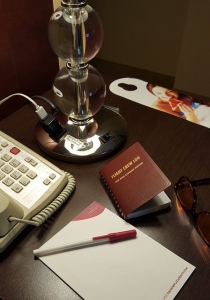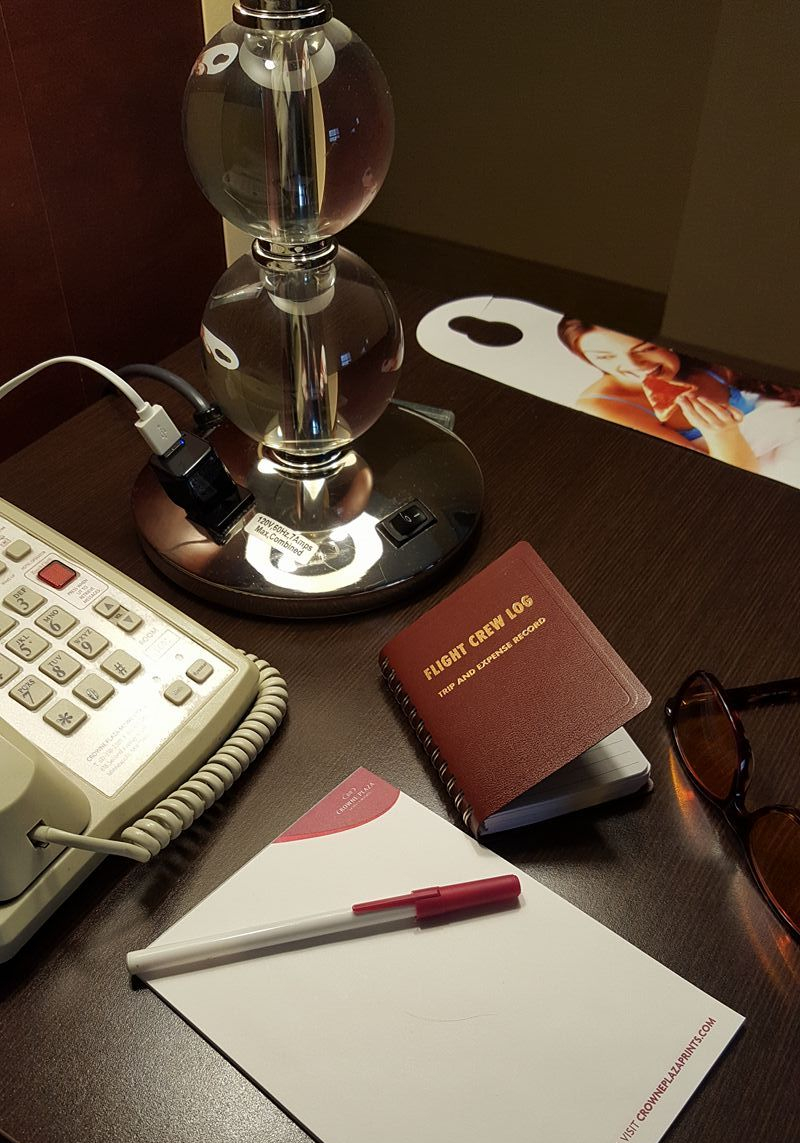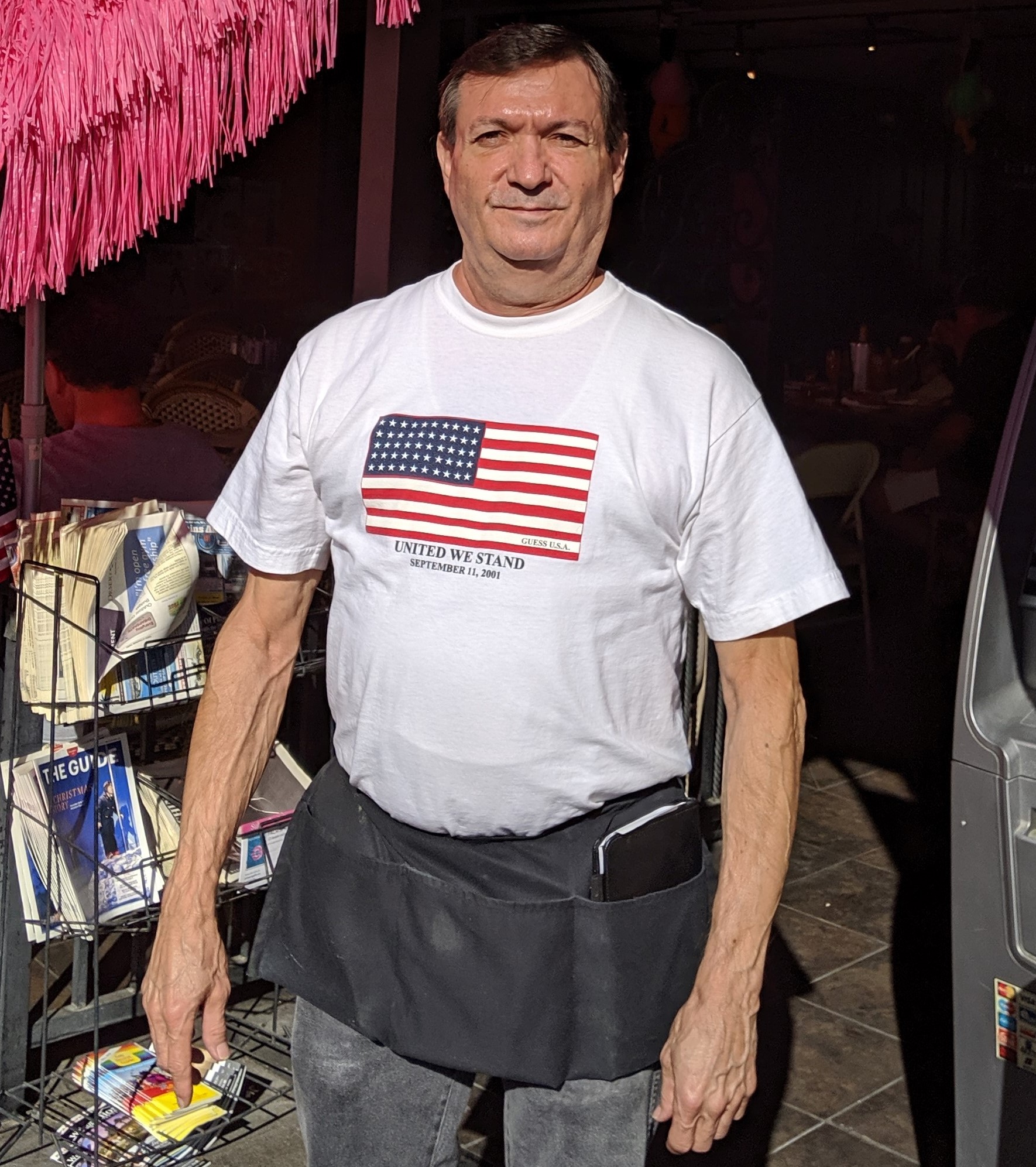A “Symphony of Your Life” blog with Mark Hardcastle

April 18th. Passenger count: 0. Ferry flight to park my 737 indefinitely. No passengers, no flight attendants. Only myself and my copilot.
Post-apocalyptic. Surreal. Unimaginable – but necessary to imagine.
That was the first part of my Captain’s Log a few days ago, accompanied by pictures of an empty parking garage, a deserted concourse, and planes on the ground. The pictures demanded a visceral response. But did they tell the whole story?
I invited thought on your part. I asked you to consider the meaning of the story in those pictures.
As fast-moving as this situation remains, these days later I invite you to think some more. Can we find something more, something bigger in the story of empty airports and parked planes?
Let’s start here. Remembering the idea that Victor Frankl is thought to have given us, that there is a space between stimulus and response, and that in that space we have the opportunity to decide how to respond, let’s step into that space. Let’s pause to think about how we – as individuals – should respond. And then let’s do that. Deliberately. With intention.
I’ve written about this before. In my book, The Symphony of Your Life: Restoring Harmony When Your World Is Out of Tune, I inclued this passage: “There is a world in which we live. It may not be the world in which we’d like to live. Yin and Yang had no say about which circle they ended up in. People, places events, and things that we have no control over will, from time to time, impact us. Once we accept that reality, we can accurately assess where we are and decide how best to move forward. The arc of our lives has less to do with Fortune herself than with how we respond to her.”
My point then was that challenges in life are inevitable. And that we should acknowledge that as truth. Otherwise we’ll never be able to respond effectively. Denial won’t serve us.
Taking it one step further, it’s clear that we have no control over the fact that we are going to be challenged. So we shouldn’t fret over it. What we can control is our response. Which means how we respond is all that matters. We should put our energy into defining how we choose to respond when the challenges show up.
So what is our reality today? What is this new world which seems so different from the world in which we’d like to live? What is it, exactly, that we need to respond to? We don’t want to sugar-coat anything, and we also don’t want to make it out to be worse than it is. So let’s figure this thing out.
I imagine that you have heard over and over again, as I have, that as a matter of economy alone this is “even worse than 9-11.” Roger that. I know it’s true. I took the pictures. And on top of that economy are the public (and personal!) health ramifications.
As we enter that quiet place between stimulus and response, I offer this encouraging reality from the guest of a podcast I heard recently. Understanding that she is battling breast cancer on top of the evaporation of her work, here’s what she said. Without minimizing the truth that nobody gets off the planet alive, we have all reached where we are today by being 100% successful at getting beyond past challenges. It’s probably the only thing that even the most successful people have been completely successful with. And every challenge that you and I have navigated over, under, around, or through has given us a new set of tools that we have then used on subsequent challenges, that we can use today, and that we can use going forward.
Yes, those victories have come at a cost. Yes, we carry scars. And yet, here we are, undeniably, and still fighting. That is an exciting perspective! With that idea carrying us into our thinking space around this corona virus, let’s go back to the event that sets the standard.
9-11 was a disaster. And we survived. There were plenty who predicted that we would not. They were wrong. Because we responded. We acknowledged the new world – the one we were living in, which was no longer the world we wanted to live in – figured out our path, and set out. What we didn’t do was roll over.
And we learned through the process. We all came away with tools that we are using today. In fact, these “tools” are not merely metaphorical. Within the flying industry, for example, we are applying specific, concrete lessons we learned in the bankruptcy era about the best ways to respond to deep financial challenges.
In your industry and in your family you’re responding differently than we are in the flying business. But you have been through your own challenges before. And every one of them has given you tools specific to your own life and business that you are able to pick up and use today. And tomorrow. And this challenge is putting even more tools in your tool bag that you’ll be able to use days, months, and years from now. Today I invite you to remember that truth. And let it bring a determined smile to your face.
Given all of that, how would you like to move forward? Does this current crisis have to be a long-term disaster? Or can it be something else? If it can be something else, what might that something be? And how can we go about creating that other thing?

The image of the medallion I’ve posted today is one of hope and optimism. Of determination. Persistence. It is a relic of the longest, most expensive bankruptcy in the history of aviation. And what it declared was true.
I choose to believe that it is also true today. The empty parking garages, concourses, and indeed airplanes remain nearly empty. But with the passing of these few days, those images have begun to lose their power as we step into the quiet space. The sense of near-devastation and the urge to panic has passed. It’s becoming easier day-by-day to believe that yet again, United will stand.
Our tools are not merely metaphorical. But they do take many different forms. As do yours. In the same way the “United Will Stand” medallion is both symbolic and utterly concrete for all of us in the airline industry. Maybe you can see it that way, too? Maybe it’s declaration of hope and success for one company can be the same for your company, your family?
And if we will all stand, what can our world look like at the end of the day? What can you imagine to be better as a result of being thrust into this opportunity to re-think? How will you look at the world differently when this tsunami of uncertainty has receded back into the vast oceans of our lives as it most certainly will? What will have been rebuilt? How will we have shifted entire landscapes for the better?
I, for one, am grateful for the massive response of our country’s various national authorities that have established a space for us to plan out our own best response. The autumn of this year will bring new information that will validate what we will have decided here in early spring, or point us in a new direction based on that new information. We will continue to march, either in the direction we are choosing today, or we’ll reach back into our tool bag for a different tool, and adjust onto another, more appropriate course.
Stephen Covey suggests that highly successful people “begin with the end in mind.” Let’s first imagine that end. Let’s create a better world, a world that wasn’t possible before this crisis, in the eyes of our minds. As we craft our crisis response with deliberation and intention, let’s draft the blueprint for how to get to that better world.
And then begin.
If you’d like some thoughts specific to your situation feel free to reach out. I’m offering free coaching during our lock down. And like the radio ad says, there’s no catch, but you have to connect. My phone number and email are below.
Thanks for reading!
Captain Mark

#stayintheprocess #symphonyofyourlife
The Symphony of Your Life on YouTube
Mark graduated from the USAF Academy in 1982. After nine years as a pilot on active duty, he left the military to join a commercial airline. In addition to flying B-737s around the country, Hardcastle spends time in the Rocky Mountains and serves on the artistic staff of the Colorado Children’s Chorale. He lives in Centennial, Colorado, with his wife and four children. Need some help figuring out why you’re on this planet? Want to talk about discovering your mission and purpose? Contact Mark today at 720.840.8361 to schedule a free personal consultation. He can also deliver an inspirational keynote or workshop for your organization! email: mark@symphonyofyourlife.com for information.














